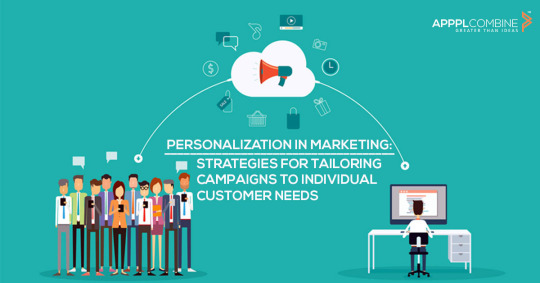#Customer relationships
Text
3 Powerful Marketing Secrets to Build Loyal Customer Relationships
#marketing #marketingtips #digitalmarketing
Watch Video Here https://youtu.be/ztEAr8T0eZ4
Discover the ultimate marketing strategy to build strong customer relationships and boost your sales! Learn how to follow up, follow back, and follow through with your customers to create a loyal community. Subscribe now and get ready to transform your business!
Welcome to our channel, where we share…

View On WordPress
#business growth#customer loyalty#customer relationships#follow back#follow through#follow up#marketing secrets#marketing tips#sales strategy#sales tips
0 notes
Text
Improve Customer Experience with Digital Transformation: A Comprehensive Guide
In today's fast-paced digital era, businesses are constantly seeking innovative ways to enhance customer experience. Digital transformation has emerged as a pivotal strategy in this endeavor, enabling organisations to leverage cutting-edge technologies to meet evolving customer expectations. This article delves into the profound impact of digital transformation on customer experience, offering actionable insights for businesses looking to thrive in the digital age.

Understanding Digital Transformation
Digital transformation involves the integration of digital technologies into all aspects of a business, fundamentally changing how organisations operate and deliver value to customers. It goes beyond mere technological upgrades; it requires a cultural shift, embracing change, and constantly challenging the status quo.
The Role of Digital Transformation in Enhancing Customer Experience
1. Personalised Customer Interactions
One of the most significant benefits of digital transformation is the ability to offer personalised experiences. Through data analytics and customer relationship management (CRM) systems, businesses can gather valuable insights into customer behavior, preferences, and purchase history. This data-driven approach allows companies to tailor their interactions, offering personalised recommendations, promotions, and communication that resonate with individual customers.
2. Seamless Omnichannel Experiences
Today's customers expect a seamless experience across all touchpoints, whether online or offline. Digital transformation enables businesses to create a unified customer journey, integrating various channels such as websites, mobile apps, social media, and physical stores. This omnichannel approach ensures that customers can transition effortlessly between different platforms, enjoying a consistent and cohesive experience.
3. Enhanced Customer Support
With the advent of artificial intelligence (AI) and machine learning, businesses can revolutionise their customer support services. Chatbots and virtual assistants powered by AI can provide instant responses to customer queries, offer solutions to common problems, and even guide users through complex processes. This not only enhances customer satisfaction but also reduces the workload on human agents, allowing them to focus on more complex issues.
4. Streamlined Processes and Efficiency
Digital transformation streamlines various business processes, making them more efficient and cost-effective. Automation of repetitive tasks, such as order processing, inventory management, and billing, reduces the chances of human error and speeds up operations. This efficiency translates into quicker response times, faster deliveries, and overall improved customer service.
Key Technologies Driving Digital Transformation
1. Artificial Intelligence and Machine Learning
AI and machine learning are at the forefront of digital transformation, offering capabilities that were once considered science fiction. These technologies enable businesses to analyse vast amounts of data, predict customer behavior, and make data-driven decisions. From personalised marketing campaigns to predictive maintenance in manufacturing, AI is transforming various industries.
2. Internet of Things (IoT)
The IoT connects everyday devices to the internet, allowing them to collect and exchange data. For businesses, this means gaining real-time insights into customer usage patterns, product performance, and potential issues. IoT-enabled devices can provide proactive maintenance alerts, improving product reliability and customer satisfaction.
3. Cloud Computing
Cloud computing provides businesses with scalable and flexible IT resources, enabling them to store and process data efficiently. This technology facilitates remote work, collaboration, and access to information from anywhere, ensuring that employees and customers can interact seamlessly. Moreover, cloud-based solutions are often more cost-effective and easier to manage than traditional on-premises systems.
4. Big Data Analytics
Big data analytics allows businesses to process and analyse large volumes of data to uncover patterns, trends, and insights. By leveraging big data, companies can gain a deeper understanding of customer preferences, market trends, and operational inefficiencies. This information is invaluable for making informed decisions and optimising customer experience strategies.
Implementing Digital Transformation: Best Practices
1. Define Clear Objectives
Before embarking on a digital transformation journey, it is crucial to define clear objectives. Identify the specific areas where digital technologies can have the most significant impact on customer experience. Whether it's improving customer support, enhancing personalisation, or streamlining processes, having clear goals will guide your transformation efforts.
2. Foster a Digital-First Culture
Digital transformation requires a cultural shift within the organisation. Encourage employees to embrace digital tools and technologies, promoting a mindset of continuous learning and adaptation. Provide training and resources to help staff understand the benefits of digital transformation and how it can enhance their roles.
3. Invest in the Right Technologies
Choosing the right technologies is critical to the success of your digital transformation initiatives. Conduct thorough research and select solutions that align with your business objectives and customer needs. Partner with reputable technology providers who can offer ongoing support and updates to keep your systems up-to-date.
4. Prioritise Data Security and Privacy
As businesses collect and analyse more customer data, ensuring data security and privacy becomes paramount. Implement robust security measures to protect sensitive information and comply with data protection regulations. Building trust with customers by safeguarding their data is essential for maintaining a positive customer experience.
5. Measure and Optimise
Digital transformation is an ongoing process that requires continuous evaluation and optimisation. Regularly measure the impact of your initiatives on customer experience through key performance indicators (KPIs) such as customer satisfaction scores, Net Promoter Scores (NPS), and customer retention rates. Use this data to identify areas for improvement and make data-driven adjustments to your strategies.
Real-World Examples of Digital Transformation Success
1. Amazon
Amazon's relentless focus on digital transformation has revolutionised the retail industry. The company leverages advanced data analytics, AI-driven recommendations, and seamless logistics to provide a superior customer experience. Features like one-click ordering, personalised recommendations, and rapid delivery have set new standards for customer expectations.
2. Starbucks
Starbucks has embraced digital transformation to enhance customer engagement and loyalty. The Starbucks mobile app allows customers to order and pay ahead, earn rewards, and receive personalised offers. The company's use of AI to analyse customer preferences and optimise inventory management has further streamlined operations and improved the overall customer experience.
3. Nike
Nike's digital transformation journey includes the integration of IoT and data analytics to offer personalised products and experiences. The Nike Fit app uses AI to provide accurate shoe sising recommendations, while the NikePlus membership program offers exclusive content, early access to products, and tailored fitness plans. These initiatives have strengthened customer loyalty and increased sales.
Conclusion
Digital transformation is no longer a luxury but a necessity for businesses aiming to improve customer experience and stay competitive in the digital age. By leveraging technologies such as AI, IoT, cloud computing, and big data analytics, companies can offer personalised, seamless, and efficient experiences that meet the evolving demands of customers.
Embracing a digital-first culture, investing in the right technologies, and continuously optimising strategies are key to successful digital transformation. Businesses that prioritise customer experience through digital transformation will not only survive but thrive in the ever-changing landscape of the modern market.
If you want to leverage digital transformation and need professional help, connect with IT Solutions Solved.
0 notes
Text
Why is Social Media Listening Important for Your Brand Reputation

Social media listening refers to the practice of monitoring and analyzing conversations and mentions related to your brand on social media platforms. It involves actively listening to what your audience is saying about your brand, competitors, industry, and relevant keywords. Here are some key reasons why social media listening is important for your brand reputation:
Understanding Customer Sentiment:
Social media listening allows you to gain insights into how your audience perceives your brand. By monitoring conversations, you can identify positive sentiment, negative feedback, and customer concerns. This understanding helps you address issues promptly, improve customer satisfaction, and protect your brand reputation
Crisis Management:
Social media can be a breeding ground for potential crises. By actively listening to social media conversations, you can identify and address issues before they escalate. Promptly responding to negative feedback or addressing customer concerns demonstrates your commitment to customer satisfaction and can help mitigate the impact of a crisis on your brand reputation
Building Strong Customer Relationships:
Engaging with your audience on social media platforms allows you to nurture strong customer relationships. By actively listening and responding to customer feedback, you show that you value their opinions and are dedicated to providing excellent customer service. This engagement helps build trust, loyalty, and a positive brand reputation
Identifying Brand Mentions and Influencers:
Social media listening enables you to discover brand mentions and conversations that may not directly tag your brand. By monitoring these conversations, you can identify brand advocates, influencers, and potential brand partnerships. Engaging with these individuals can help amplify your brand message and enhance your reputation
Market Research and Competitive Analysis:
Social media listening provides valuable insights into industry trends, competitor activities, and customer preferences. By analyzing these conversations, you can identify market opportunities, refine your marketing strategies, and stay ahead of your competitors. This knowledge helps you position your brand effectively and maintain a competitive edge
Improving Product and Service Offerings:
Social media listening allows you to gather feedback and suggestions from your audience. By understanding their needs and preferences, you can make informed decisions to improve your products or services. This customer-centric approach demonstrates your commitment to meeting their expectations and enhances your brand reputation
In conclusion, social media listening plays a crucial role in managing your brand reputation. By actively monitoring and analyzing social media conversations, you can gain valuable insights, address customer concerns, and build strong relationships with your audience. This proactive approach helps protect and enhance your brand reputation in the digital landscape.
Remember, social media listening is an ongoing process that requires consistent monitoring and analysis to stay informed and responsive to your audience's needs and sentiments.
#Social Media Listening#Brand Reputation#Customer Sentiment#Crisis Management#Customer Relationships#Market Research#Competitive Analysis#Product Improvement#SEO Benefits#Content Organization#User Experience#Categories and Tags#WordPress#Blog Management#Tag Organization#Tag Cloud#Hashtags#Engagement#Content Discoverability#Internal Linking
0 notes
Text
Personalization in Marketing: Strategies for Tailoring Campaigns to Individual Customer Needs

Personalization in marketing is the practice of tailoring marketing campaigns to the individual needs and preferences of customers.
Personalization in marketing is the practice of tailoring marketing campaigns to the individual needs and preferences of customers. By providing personalized experiences, businesses can increase engagement, build stronger relationships with customers, and ultimately, drive more sales.
Here are some strategies for implementing personalization in your marketing campaigns:
1. Use Customer Data to Create Segments: The first step in personalization is understanding your customers. By collecting and analyzing customer data, businesses can identify common traits and behaviors and group customers into segments based on their interests, behaviors, and demographics. This segmentation allows businesses to deliver more targeted messages and create a more personalized experience for customers.
2. Develop a Personalized Messaging Strategy: Once you have segmented your customers, the next step is to create personalized messaging that resonates with each segment. This includes using language and imagery that speaks to the interests and preferences of each group, highlighting products and services that are most relevant to each segment, and delivering messages at the right time and on the right channel.
3. Leverage Automation to Streamline Personalization: Personalization can be time-consuming, but automation tools can help streamline the process. Automation can be used to send personalized messages based on customer behavior, such as abandoned cart reminders, product recommendations, and follow-up emails after a purchase. This type of automation allows businesses to deliver personalized messages at scale, improving the customer experience while reducing the workload for marketing teams.
4. Use AI and Machine Learning to Enhance Personalization: AI and machine learning technologies can be used to analyze customer data and deliver even more personalized experiences. For example, businesses can use AI-powered chatbots to provide real-time customer service, recommending products and services based on the customer's interests and previous purchases.
5. Incorporate Personalization into Your Website and E-commerce Platform: Personalization should be an integral part of your website and e-commerce platform. This includes using dynamic content that changes based on the customer's behavior, such as recommended products and services, personalized messaging, and customized landing pages. This type of personalization can significantly improve the customer experience and drive more conversions.
6. Use Retargeting to Deliver Personalized Ads: Retargeting allows businesses to deliver personalized ads to customers who have already shown an interest in their products or services. By using customer data to target specific individuals with relevant ads, businesses can improve the ROI of their advertising campaigns and deliver a more personalized experience for customers.
7. Continuously Measure and Optimize: Personalization requires continuous optimization. By analyzing customer data and campaign performance, businesses can identify areas for improvement and continually refine their personalization strategies. This includes A/B testing messaging and offers, analyzing the effectiveness of different personalization tactics, and adjusting campaigns based on customer feedback.
Personalization is a critical strategy for businesses looking to improve their customer engagement, build stronger relationships, and increase sales. By leveraging customer data, developing a personalized messaging strategy, using automation and AI, and continuously measuring and optimizing, businesses can create a more personalized experience for their customers, improving the overall customer experience and driving more sales. As technology continues to evolve, businesses must stay up-to-date with the latest personalization trends and technologies to remain competitive and deliver a superior customer experience.
At Apppl Combine, we offer a range of email marketing services to help businesses connect with their audience and drive results. Our team of experts can help businesses design and implement effective email campaigns that deliver personalized, relevant content to subscribers. We use advanced tools and strategies to optimize campaigns for maximum engagement and conversions. Whether businesses are looking to build brand awareness, nurture leads, or drive sales, we can help them achieve their email marketing goals. To know more visit- https://apppl.com
This post was originally published on: Apppl Combine
#ad agency#customer engagement#customer relationships#email marketing services#personalization in marketing#tailored marketing campaigns#advertising agencies in delhi ncr#apppl combine
0 notes
Text
Salesperson integrity ... it turns out it matters!
I find still that there is a proportion of the population who hold selling and salespeople in disregard.
That assumption that every salesperson is in it for what he or she will get out of the deal.
The reality that so much of selling to consumers and so much of commodity sales are online is perhaps dispelling the assumption that salespeople are manipulators as the buyer is in control of the…

View On WordPress
0 notes
Text
A Guide to Building Trust and Loyalty in Food Service Business
Cultivating trust and loyalty among customers, particularly those with food allergies, is indispensable in food service settings where dietary preferences and restrictions are as diverse as the dishes served. Establishing a bond built on transparency, safety, and exceptional service goes beyond mere transactions; it's all about fostering relationships that can withstand the test of time. This article delves into the pivotal strategies food service establishments can employ to earn their clientele's trust and inspire unwavering loyalty.
Trust is built over time through consistently delivering exceptional service, and loyalty follows when customers feel understood, respected, and safe.
Building Trust with Customers
Building trust with customers, particularly those with food allergies, involves a consistent commitment to safety, transparency, and excellent service. Here are key strategies to cultivate trust:
Be Transparent and Honest: Be upfront about your menu and the potential allergens in your food. Honesty fosters trust and is particularly crucial for customers with food allergies.
Ensure Safety: Implement rigorous food handling and preparation protocols to avoid cross-contact with allergens. Customers will trust your establishment when they feel their health is prioritized.
Maintain Consistency: Deliver consistent service quality, from the food quality to the attentiveness of the staff. Consistency signals reliability, building trust over time.
Acknowledge Mistakes: If a mistake happens, own up to it, apologize sincerely, and rectify the situation promptly. This demonstrates integrity and can strengthen trust.
A Guide to Fostering Loyalty
Loyal customers are invaluable to the long-term success of your establishment. They not only frequent your business but also recommend it to others. Here's how you can foster loyalty:
Provide Exceptional Service: Always aim to exceed customer expectations. A satisfied customer is likely to return and become a loyal patron.
Personalize the Experience: Remember regular customers, their preferences, and their allergies. Personal touches like these make customers feel valued and enhance their loyalty.
Encourage Feedback: Ask for feedback and show customers you value their input. Make necessary changes based on their suggestions, which can increase their loyalty.
Reward Loyalty: Implement a loyalty program or offer discounts to regular customers. Rewards give customers a tangible reason to return.
When dealing with allergic customers, their safety is the top priority. Their trust in your ability to cater to their dietary needs and prevent cross-contact with allergens is critical. Their loyalty stems from repeated positive experiences where they feel understood, cared for, and safe.
Maintain clear communication, offer allergen-free options, and train your staff adequately to handle food allergies.
In conclusion, ensuring clear and accessible communication regarding allergens in food packaging and labeling is vital. Factors like label design, multilingual labeling, symbols, packaging materials, and integrity are crucial in keeping us safe, especially those with food allergies.
Every detail matters in creating a safer food environment, from ensuring the labels are easy to read to selecting the right packaging materials to prevent cross-contact. These steps aren't just about meeting regulations but looking for each other's well-being. By prioritizing these aspects, we minimize risks and build trust and confidence in the products we consume.
Overall, it's a reminder of the personal impact of allergen awareness and the importance of taking it seriously in our everyday lives.
#Trust building#Loyalty fostering#Food service business#Customer relationships#Transparency#Safety commitment#Exceptional service#Consistency#Integrity#Customer feedback#Personalization#Allergen management#Cross-contact prevention#Customer safety#Loyalty programs#Reward systems#Communication#Allergen awareness#Labeling#Packaging#Regulatory compliance.
0 notes
Text
Entrepreneurship - Be the choice
Every business needs customers, awareness, and an entrepreneur driven to convert into revenue through activity.
Social media platforms offer great tools for persons entering business with a small budget. You can get your message out to the public and in front of your present and future customers without breaking the bank and some creative strategic actions. There is Linkedin, Snapchat, Facebook,…

View On WordPress
#Business Development#Business Strategy#Choices#Customer#Customer Engagement#Customer Relationships#Entrepreneur#Goals#Life Lessons#Mindset#Purpose
0 notes
Text
Entrepreneurship - Be the choice
Every business needs customers, awareness, and an entrepreneur driven to convert into revenue through activity.
Social media platforms offer great tools for persons entering business with a small budget. You can get your message out to the public and in front of your present and future customers without breaking the bank and some creative strategic actions. There is Linkedin, Snapchat, Facebook,…

View On WordPress
#Business Development#Business Strategy#Choices#Customer#Customer Engagement#Customer Relationships#Entrepreneur#Goals#Life Lessons#Mindset#Purpose
0 notes
Text
0 notes
Text
Artificial Intelligence (AI) Made Easy: A Smart Guide for Small Businesses to Boost Growth
Ever wondered if artificial intelligence (AI) could do wonders for your small business, just like in those big success stories? Well, the answer is a resounding yes! In this guide, we're breaking down the complex AI jargon into simple, actionable steps that won't put you to sleep. Let's explore how AI can revolutionize your customer relationships, streamline your operations, and give your business the boost it deserves.
1. AI's Superpower: Customer Relationships

Picture this: Artificial Intelligence (AI) helping you build better connections with your customers. No, it's not a dream! With tools like Salesforce's Einstein Activity Capture, AI can handle customer interactions effortlessly. It's like having a super-smart assistant that not only captures data accurately but also understands what your customers really want. Plus, with emotional analysis during calls (thanks to Cogito Intelligence), you'll always be in sync with your customers' vibes.
2. Talk of the Town: Customer Communication

Don't we all love a quick and helpful response? That's where AI-powered chatbots shine. These virtual helpers not only answer common questions but also work 24/7. So, your customers get instant answers about your business without waiting for office hours. It's like having a round-the-clock assistant, but without the coffee breaks!
3. HR Hero: AI in Human Resources

Artificial Intelligence (AI) isn't just for techies; it's a real hero in HR too! Imagine having Google's Hire system automatically sorting through resumes, highlighting the best candidates, and even scheduling interviews. It's like having a personal assistant that's excellent at hiring!
4. Money Matters: AI in Cash Flow Management

Let's talk cash! Predicting cash flow is like predicting the weather for your business. QuickBooks, with its Artificial Intelligence (AI) magic, does just that. It gives you recommendations based on real data, helping you make smart financial decisions. Think of it as your financial superhero, guiding you through the money maze.
5. Secret Weapon: AI for a Competitive Edge

Want to know what your competitors are up to? Artificial Intelligence (AI) can be your secret weapon. Tools like Crayon analyze data from competitors' websites, giving you insights without the manual research headache. It's like having a spy that spills all the beans without breaking a sweat.
6. Bonus Round: More Cool AI Strategies for Your Business

Personalized Marketing Magic: Artificial Intelligence (AI) can analyze your customer data to create personalized marketing campaigns. Imagine sending your customers offers and content they actually care about!
Smart Inventory Tricks: Let Artificial Intelligence (AI) predict what you need in stock and what you don't. Say goodbye to overstock or running out of the good stuff.
Automate the Boring Stuff: Identify those repetitive tasks and let Artificial Intelligence (AI) handle them. It's like having an assistant who loves doing the dull work.
Cybersecurity Buddy: Small businesses need cybersecurity too! Artificial Intelligence (AI) can spot unusual activities and stop cyber threats in their tracks.
Financial Wizardry: Get Artificial Intelligence (AI) to manage budgets, predict cash flows, and analyze financial data. It's like having a financial advisor who never takes a day off.
Chatbots for Super Support: Implement AI-driven chatbots for customer support. Your customers get quick answers, and your team can focus on the big stuff.
Social Media Guru: Let Artificial Intelligence (AI) analyze what's buzzing on social media. Find out what your customers love or dislike and tailor your strategy accordingly.
Sales Psychic: Predict future sales trends with Artificial Intelligence (AI). It's like having a crystal ball that actually works for your business.
User-Friendly Apps: Integrate Artificial Intelligence (AI) features into your mobile apps. Imagine your app understanding users and making their experience unique.
Creative Ally: Use Artificial Intelligence (AI) for design and content creation. It's like having a creative partner that never runs out of ideas.
Market Research Pro: Artificial Intelligence (AI) can help you study market trends and your competitors. Think of it as a research assistant that never takes a lunch break.
Artificial Intelligence (AI) in Training: For ongoing training, use AI-powered e-learning platforms. Each employee gets a personalized training plan.
Smart Hiring: Let Artificial Intelligence (AI) streamline recruitment. It's like having a hiring assistant that knows exactly what you're looking for.
Spy on Competitors: Use Artificial Intelligence (AI) to keep tabs on competitors. It's like having a business detective revealing their secrets.
Artificial Intelligence (AI) in App Development: Integrate AI features into your apps. It's like giving your app superpowers for a standout user experience.
Stay Updated: Keep an eye on Artificial Intelligence (AI) trends. Be ready to adapt your strategies as new and exciting AI technologies emerge.
7. Clearing the AI Fog: Busting Common Myths

Myth 1: AI Is Too Expensive
Nope! Small businesses can afford Artificial Intelligence (AI). Ready-made solutions are out there, and you don't need a whole tech team.
Myth 2: AI Is Only for Big Shots
Wrong! Small businesses have enough data for Artificial Intelligence (AI). Think of it as having a mini AI superhero for your unique needs.
Myth 3: AI Is Too Complicated
Not really! Artificial Intelligence (AI) tools often come with user-friendly interfaces. It's like using apps on your phone—easy and straightforward.
8. AI Adoption Hacks for Small Businesses

Tip 1: Be Specific: Identify exactly what you want Artificial Intelligence (AI) to do. Don't just jump in; think about the specific challenges you want to tackle.
Tip 2: Tidy Up Your Data: Before diving into Artificial Intelligence (AI), organize your data. It's like cleaning up your room before a big makeover.
Tip 3: Plan Strategically: Artificial Intelligence (AI) isn’t a magic wand. Plan how it aligns with your goals and brings in a return on investment. Think strategy, not magic!
Tip 4: Avoid the 'Insights' Trap: Artificial Intelligence (AI) is a tool, not a crystal ball. Use it to make decisions, not just for insights. It's the decisions that count.
Tip 5: Stay Smart and Flexible: The Artificial Intelligence (AI) world moves fast. Stay updated, be smart, and be ready to tweak your strategies as new AI tech comes along.
Conclusion: Partner with Max Vision Solutions for an AI-Powered Business Transformation
In the fast-paced world of small business, Max Vision Solutions emerges as a key ally in unleashing the potential of artificial intelligence (AI). With a rich legacy of 15 years in the industry, Max Vision Solutions not only guides you through this transformative AI journey but also offers tailored solutions to make your business thrive.
As your strategic partner, Max Vision Solutions ensures that AI becomes more than just a technological upgrade—it becomes the driving force behind your business success. From seamless integration of cutting-edge AI tools to personalized strategies, we're here to give your small business the AI makeover it deserves. Trust Max Vision Solutions to simplify, streamline, and elevate your business operations with the power of Artificial Intelligence (AI). Let's embark on this exciting journey together! 🚀
Keywords:
Artificial Intelligence (AI)
Small Business Growth
AI Strategies
Customer Relationships
AI in Human Resources
Cash Flow Management
Competitive Edge with AI
AI Myths
AI Adoption Tips
Max Vision Solutions
Customer Communication
AI-powered Chatbots
Financial Guidance
Predictive Analytics
Market Trends
Cybersecurity
Chatbots for Support
Social Media Analysis
Sales Trends
User-Friendly Apps
Creative AI
Market Research
Spy on Competitors
AI in App Development
AI Trends
Few Title
AI Magic for Small Businesses: Boosting Operations and Growth
#Artificial Intelligence (AI)#Small Business Growth#AI Strategies#Customer Relationships#AI in Human Resources#Cash Flow Management#Competitive Edge with AI#AI Myths#AI Adoption Tips#Max Vision Solutions#Customer Communication#AI-powered Chatbots
0 notes
Text
3 Powerful Marketing Secrets to Build Loyal Customer Relationships
#marketing #marketingtips #digitalmarketing
Watch Video Here https://youtu.be/ztEAr8T0eZ4
Discover the ultimate marketing strategy to build strong customer relationships and boost your sales! Learn how to follow up, follow back, and follow through with your customers to create a loyal community. Subscribe now and get ready to transform your business!
Welcome to our channel, where we share…

View On WordPress
#business growth#customer loyalty#customer relationships#follow back#follow through#follow up#marketing secrets#marketing tips#sales strategy#sales tips
0 notes
Text
Why are customer relationships important?
Customer relationships are important for any business to succeed, no matter what industry or size. In fact, keeping them is crucial in today's world of customer relationships than ever before.
In today's competitive market, businesses should prioritize building and maintaining strong relationships with their customers to ensure repeat business and positive word-of-mouth marketing.
One of the primary reasons why customer relationships are important is that they help create customer loyalty. When customers feel valued and appreciated, they are more likely to continue doing business with your company.
Loyal customers tend to spend more money per transaction and are more likely to refer their friends and family to your business, which can result in new customers.
“Nurture relationships with future buyers so that when the time comes to buy, they think of you. Efficiently convert prospects by making it easy for them to buy from your brand. Don’t limit your prospect pool by only talking to existing prospects” - studioID's Definitive Guide to Brand-to-Demand Marketing Report
Customer relationships provide valuable feedback for businesses. When you have a good relationship with your customers, they are more likely to give you honest feedback about your products or services, which can help you improve and grow as a company.
This feedback can also help you identify areas where you need to make changes or investments, whether that be in your customer service or your product offerings.
“But in an economically challenged, post-iOS 14.5 world, when paid targeting is getting less precise and consumers are getting more selective about which brands they deem worthy of their money, building strong relationships with loyal customers now depends on your ability to communicate with them in a way that makes them feel seen, heard, and valued” – Klaviyo
Building strong customer relationships can also lead to better communication between businesses and their customers.
When you have a good relationship with your customers, they are more likely to communicate with you about their needs and preferences. This can help you tailor your offerings to better meet their needs and keep them satisfied.
Last but not least, customer relationships can also help businesses stand out from their competitors. Yes, in today's crowded market, businesses need to differentiate themselves from their competitors to attract and retain customers.
By building strong relationships with your customers, you can create a unique experience that sets you apart from your competitors.
“Given the importance of trust in customer relationships, it’s no surprise an increasing number of marketers say they're going above and beyond to protect customers’ privacy” – Salesforce’s Digital Trends Report
In conclusion, customer relationships are important for businesses of all sizes and industries.
By prioritizing building and maintaining strong relationships with your customers, you can increase customer loyalty, receive valuable feedback, improve communication, and stand out from your competitors.
Here's related information that you may find helpful – What drives Brand Loyalty? [Know these 7 most important factors]
0 notes
Text
Enhancing CRM Solutions: The Crucial Role of Technology
Today, businesses rely heavily on CRM solutions to manage customer interactions and relationships. Leveraging technology in CRM is vital for automating processes, gaining insights, and enhancing customer satisfaction. Here's how technology revolutionises CRM solutions:
Automate and Streamline Processes: Reduces manual tasks, allowing focus on strategic activities.
Data Management and Integration: Centralises data from multiple sources for informed decision-making.
AI and Machine Learning: Enhances customer interactions and predictive analytics.
Mobile CRM and Remote Access: Improves productivity with cloud-based CRM accessible on mobile devices.
Analytics and Reporting: Provides real-time insights for data-driven decisions.
Social CRM & Omnichannel Engagement: Manages interactions across multiple channels for a seamless customer experience.
Security and Compliance: Ensures data protection with advanced security measures.
Scalability and Flexibility: Adapts to growing business needs with scalable solutions.
Integration with IoT: Utilises real-time data from connected devices for better service and product development.
AIoT (Artificial Intelligence of Things): Combines AI with IoT data for advanced analytics and intelligent decision-making.
Hyper-personalisation: Uses big data and AI to deliver highly personalised customer experiences.
Embracing these technological advancements in CRM solutions is essential for building stronger customer relationships and achieving business success. If you want to implement and need help, you can hire IT Solutions Solved for better outcome.
#CRM Solutions#AI with IoT#technological advancements#customer relationships#businessgrowth#zoho crm#crm consulting services#crm consultancy#zoho#it solutions solved#crm consulting#crm#business#crm consultant in melbourne#zoho partner in australia#expert crm consulting services
0 notes
Text
The Role of Game Mechanics in Customer Relationship Building for Social Games
Discover how game mechanics can build stronger customer relationships in social games! Learn about social interaction, reward, progress, and status mechanics.
#gamedesign #socialgames #customerrelationship #AdobeFirefly

View On WordPress
#Best practices#Customer relationships#engagement#game mechanics#Gamification#gaming#player retention#Progress#rewards#Social games#social interaction#Status#user experience#virtual currency#Virtual goods
0 notes
Link
The #Salesforce Winter '23 release is packed with new features and enhancements that make it easier to manage #customer relationships, customize your organization’s #userexperience, and more. Read this blog that contains some highlights of the upcoming update. #Solunus
0 notes
Text
Salespeople must have a transformational mindset
In the dynamic landscape of today’s business environment, the role of a salesperson has evolved beyond the traditional pitch-and-close model, transactional selling methods.
In order to thrive in a time of constant change and technological advancements, adopting a transformational mindset has become not just beneficial but essential for success in complex sales environments.
This means…

View On WordPress
#customer relationships#customer success focus#high value customers#sales mindset#transformational sales mindset#Trust
0 notes